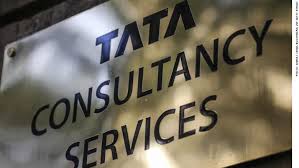India’s top tech company is worth $100 billion

India’s biggest tech company has broken the $ 100 billion barrier.
Tata Consultancy Services (TCS) saw its market capitalization cross the milestone for the first time on Monday, the first Indian company to do so in at least a decade and only the second ever.
Reliance Industries, the conglomerate owned by India’s richest man Mukesh Ambani, achieved a market capitalization of $ 100 billion back in 2007, according to FactSet data, but has since slipped back a bit. Reliance is now worth about $ 89 billion.
TCS is part of the Tata Group, another of India’s big conglomerates that sells everything from cars to salt and owns iconic global brands like Jaguar Land Rover.
“We are … delighted and thankful to our employees and customers who have been instrumental in achieving this milestone,” TCS CEO Rajesh Gopinathan said in a statement emailed to CNNMoney on Monday.
The company’s shares surged more than 4% on Monday to take its value past the $ 100 billion-mark, but they shed most of those gains to close narrowly higher in Bombay. That left its market value at $ 99 billion.
The stock price has risen more than 7% since Thursday, when TCS reported quarterly revenues of nearly $ 5 billion, beating analysts’ expectations.
Gopinathan attributed the company’s strong performance to its growth in new digital technologies like cloud computing, automation and smart, connected devices, as well as “mega-deals” with new clients — including Marks & Spencer (MAKSY) and Rolls Royce (RYCEY) — in the past year.
‘Right direction’
“TCS strategy has been in the right direction,” said DD Mishra, an analyst at consulting firm Gartner, adding that the company has been able to apply new technologies to meet the changing needs of its customers.
TCS has also adapted to other challenges facing India’s massive tech industry, such as growing protectionism around the world. The company has been one of the biggest recipients of America’s H-1B work visas, close to 70% of which generally go to Indian tech workers and which President Donald Trump has sought to crack down on.
But TCS revealed last year that it began dramatically reducing its dependence on the H-1B program even before Trump took office, hiring more local workers instead. The company hired 11,500 new employees outside India in the last financial year, Ajoy Mukherjee, vice president of human resources, said in its latest annual report.
It has also been expanding in markets outside North America. TCS said last week that its business in Europe and the UK grew by 19% and nearly 11% respectively in the quarter ended March, with North America growing by almost 5% compared to the previous year.
